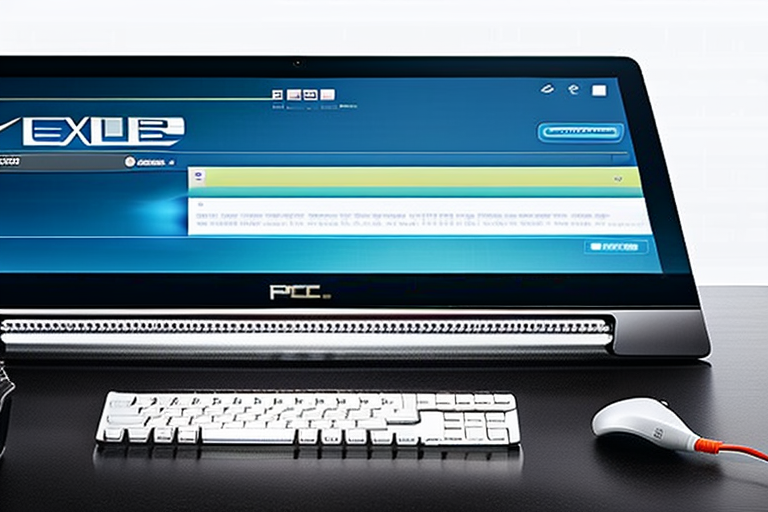Do you ever get frustrated with slow loading websites? You’re not alone. In fact, website speed and performance are important factors that can impact user experience and even affect your website’s search engine rankings. In this blog post, we’ll explore why website speed is crucial and share tips on how to optimize your website for better performance.
Introduction: Why website speed and performance matter
Website speed and performance are critical factors when it comes to delivering an exceptional user experience. As mentioned in the previous section, slow websites lead to high bounce rates, low traffic, dissatisfied customers, and lower search engine rankings. Therefore, it is vitally important for website owners to optimize web performance, making it easier for users to consume content and to take the required action. Through the optimization of web pages, businesses can strengthen brand presence, generate more traffic, and reduce bounce rates while enjoying higher conversion rates. In the following sections, we will dive deeper into the impact of website performance on user experience and search engine ranking, practical tips for improving website speed, and the significance of tracking website speed regularly.
1. The impact of site speed on user experience and customer satisfaction
Factual data shows that website speed has a direct impact on user experience and customer satisfaction. Slow loading times can result in negative user experiences, lower overall site traffic, and decreased customer satisfaction, leading to decreased conversions and revenue. In contrast, high-performing sites have been shown to rank higher in the search engines, get more conversions and revenue, and deliver better customer experiences. It has been showcased that fast-load speed is recognized by Google’s algorithms as a sign of a user-friendly website deserving of a higher position in the search results. Therefore, it is essential for website owners to prioritize website speed as a top priority to improve user experience and increase customer satisfaction.
2. The relationship between website speed and search engine ranking
The importance of website speed and performance cannot be overstated, especially when it comes to search engine ranking. Google has made it a priority to give fast websites an advantage over slower ones, as page speed is considered a crucial ranking factor. This means that optimizing page speed is vital if website owners want to rank well in search engines and attract more traffic. A slow website can negatively impact SEO and lead to lower search engine rankings, lower conversion rates, and higher bounce rates. To improve website speed and performance, website owners can focus on web page optimization, reduce image sizes, use a content delivery network, and regularly measure and track website speed metrics. By prioritizing website speed and performance, website owners can improve their brand image, attract more customers, and boost their search engine rankings.
3. The importance of web page optimization
Web page optimization is crucial for ensuring that a website’s speed and performance are at optimal levels. As discussed earlier, site speed affects user experience, customer satisfaction, and search engine ranking, making it a critical aspect of web development. Optimizing web pages can help provide users with quick loading of page content, resulting in reduced bounce rates, increased conversion rates, and ultimately higher revenue. It is also essential to note that slow sites have usability and SEO issues, which can affect a brand’s perception. Therefore, website owners must prioritize web page optimization as part of their overall web development strategy. By doing this, they can ensure that their site meets Core Web Vitals signals and provides a seamless user experience.
4. How site speed affects traffic and lead generation
A slow-loading website can negatively impact traffic and lead generation. Research shows that users are more likely to abandon a site that takes too long to load, which can increase bounce rates and decrease overall traffic. Plus, potential customers may view a slow-loading site as unprofessional or unreliable, leading to lower lead generation and sales. In contrast, a website that loads quickly can increase user engagement and satisfaction and ultimately drive more traffic and leads. Website owners and developers should prioritize site speed as part of their overall web performance strategy to ensure their site performs well and delivers a positive user experience.
5. Understanding bounce rates and how to reduce them
Understanding bounce rates is an essential aspect of optimizing website performance. As discussed earlier, a high bounce rate indicates that visitors are leaving a website after viewing only one page. This can lead to decreased engagement, lower conversion rates, and ultimately, reduced revenue. To reduce bounce rates, it’s crucial to improve website speed and usability. This can be achieved through streamlined website design, optimized content, and responsive web design. Additionally, providing high-quality content, personalized recommendations, and clear navigation can also help reduce bounce rates. By focusing on improving website performance and reducing bounce rates, website owners can enhance customer satisfaction, improve search engine rankings, and increase revenue.
6. Building a strong brand image with web performance
High-performance websites play a crucial role in building a strong brand image. In today’s digital age, where businesses compete in overcrowded markets, customers hardly wait for a slow website to load. Slow website speed and poor performance can adversely affect the user experience, impacting customer satisfaction and ultimately the brand’s reputation. Conversely, a fast and well-optimized website enhances user satisfaction, engagement, conversion rates, and reduces the website’s bounce rate. Such high-performing websites lead to a higher return rate, and ranks better in organic search results. Hence, website owners must prioritize website speed and performance to ensure a strong brand image that leads to long-term customer loyalty.
7. The consequences of poorly performing sites
The consequences of poorly performing sites cannot be overlooked. Slow loading websites increase the likelihood of site abandonment, impacting user satisfaction and customer experience, which ultimately affects the revenue of the brand. Slow loading times can cause content to be inaccessible, further damaging the reputation of the brand. Besides, poor performance can lead to increased bounce rates, reduced lead generation, and damaging the image of the brand in the eyes of the public. A slow performing site ends up costing the brand both money and reputation. Therefore, the web page optimization and improving the website’s speed and performance should be a crucial priority for website owners to improve their website visitors’ experience, conversions, and revenue.
8. Tips for improving website speed and performance
In order to improve website speed and performance, there are various techniques and best practices to implement. One of the first steps is to move the website to a better host that can handle high traffic volumes. Another effective strategy is to optimize for perceived load time, which means using visual cues to make the page feel like it is loading faster than it actually is. To reduce the number of HTTP requests, minimize the number of resources loaded on the page. It’s also crucial to keep the user experience in mind and optimize according to user expectations. One second of improvement in website speed can lead to a 27% increase in conversions for mobile users, according to Google. Therefore, keeping page speed under two seconds is always a good goal to aim for. By implementing techniques like these, website owners can ensure that their sites are fast, engaging, and appealing to visitors, ultimately leading to improved SEO rankings, conversions, and brand perception.
9. Measuring and tracking website speed
Measuring and tracking website speed is crucial for ensuring optimal user experience and maximizing lead generation potential. Monitoring factors such as page load times, error rates, and bounce rates can provide valuable insights into areas that need improvement. With the help of various web performance tools and analytics, website owners can identify trends, track progress, and set goals for improving speeds and user satisfaction. By making website speed a top priority and continuously monitoring and implementing improvements, businesses can strengthen their online presence and brand image while staying ahead of the competition.
10. Conclusion: Why website speed should be a top priority for website owners
In conclusion, the importance of website speed and performance cannot be overemphasized. Based on factual data, website speed significantly impacts user experience, customer satisfaction, search engine ranking, traffic, lead generation, brand image, and bounce rates. As such, website owners should make website speed optimization a top priority. Thankfully, optimizing website speed takes less time and resources than other SEO strategies. By implementing the tips and tricks outlined in this guide, website owners can significantly improve their website speed and deliver better experiences to their users. Faster websites lead to better UX, more conversions, and greater success in the online world. Therefore, website speed optimization should be a must-do for all website owners.




